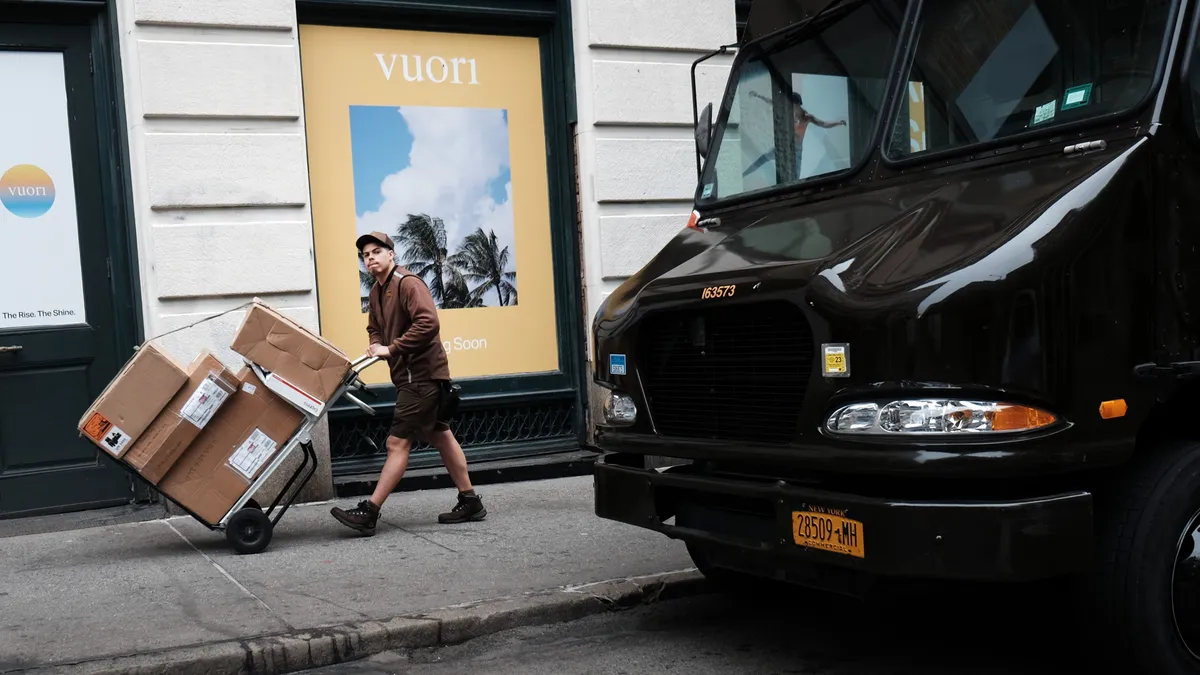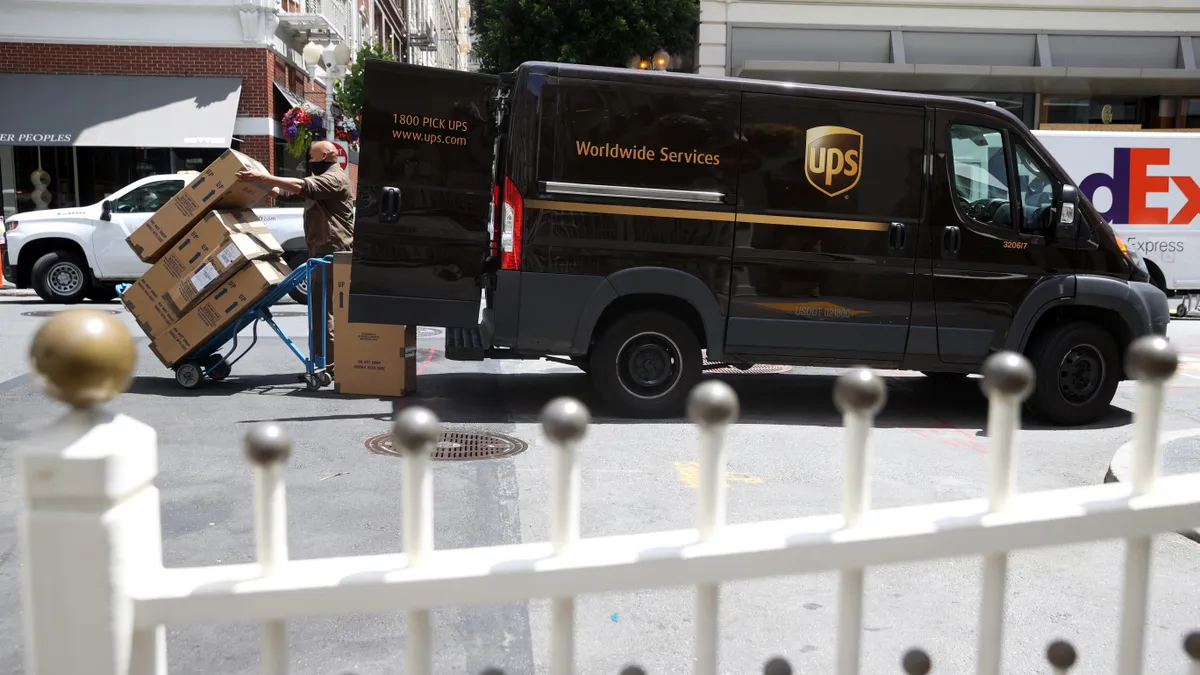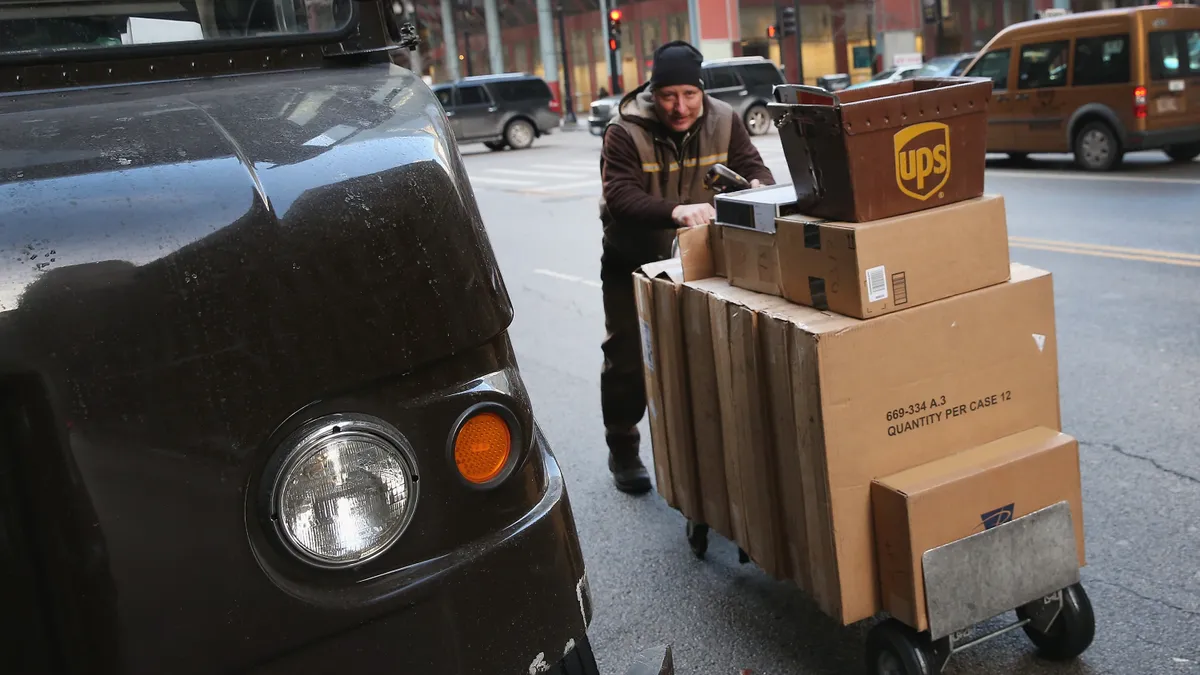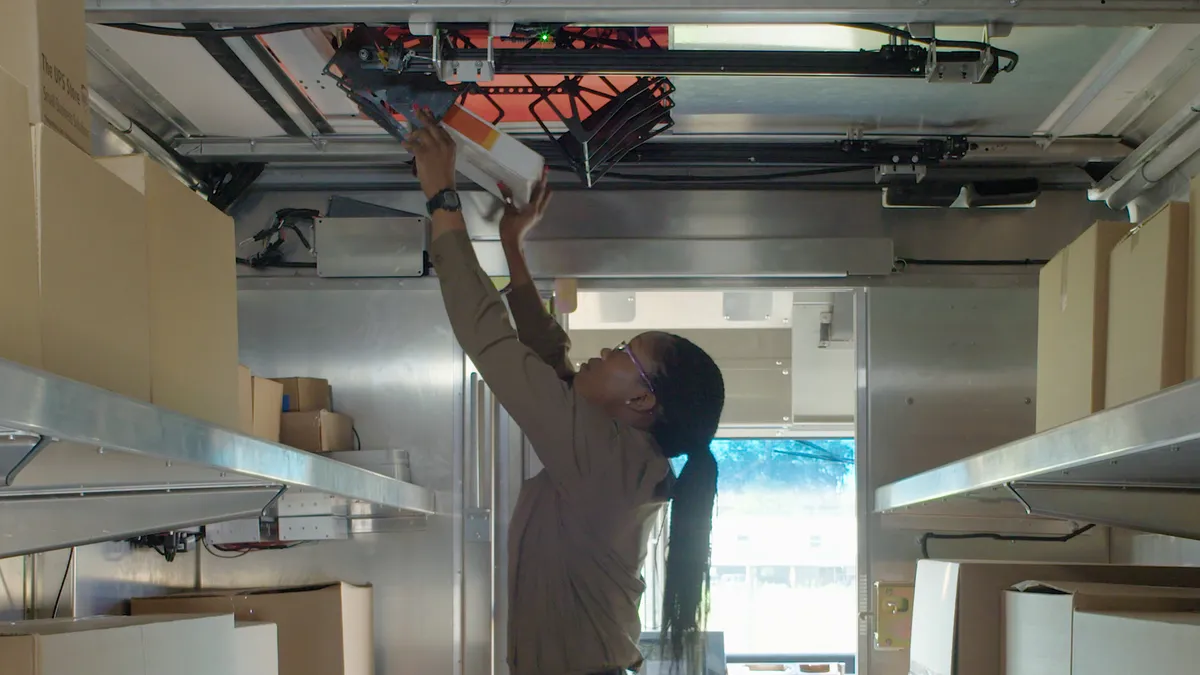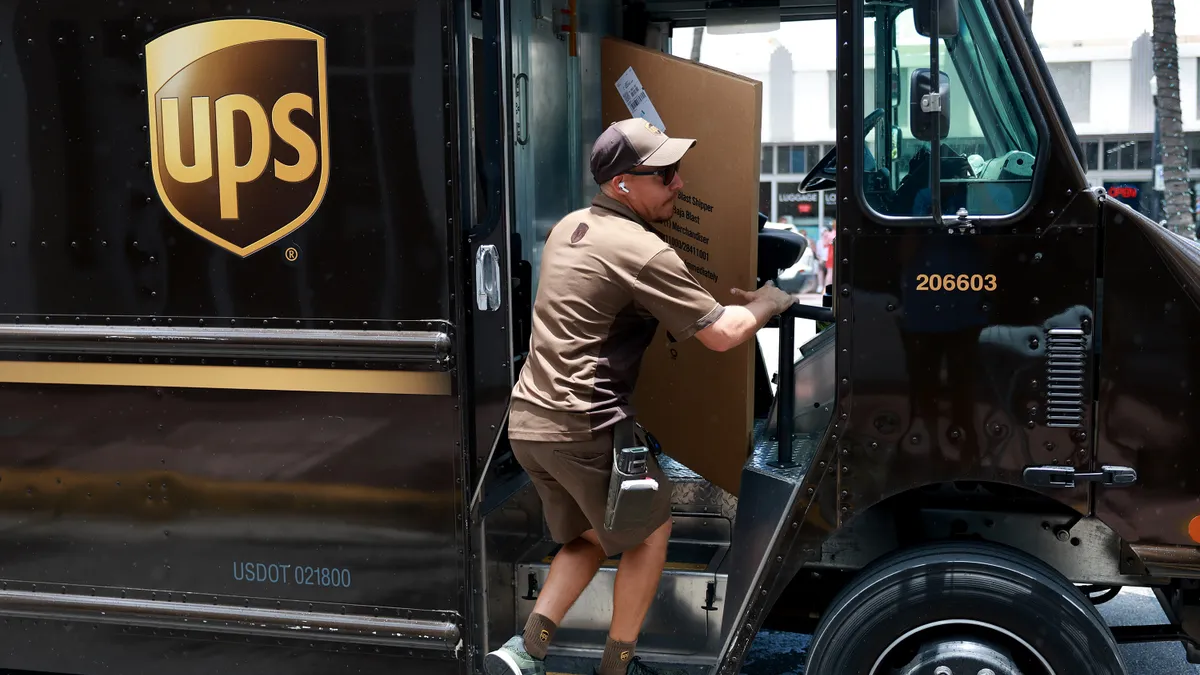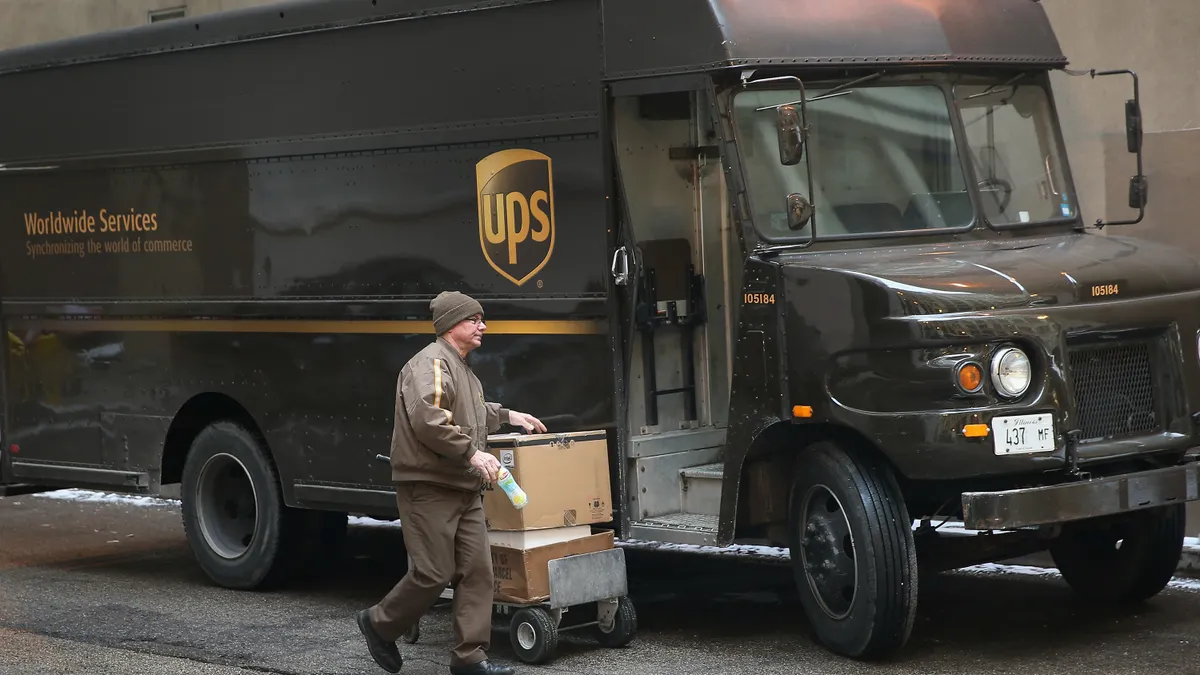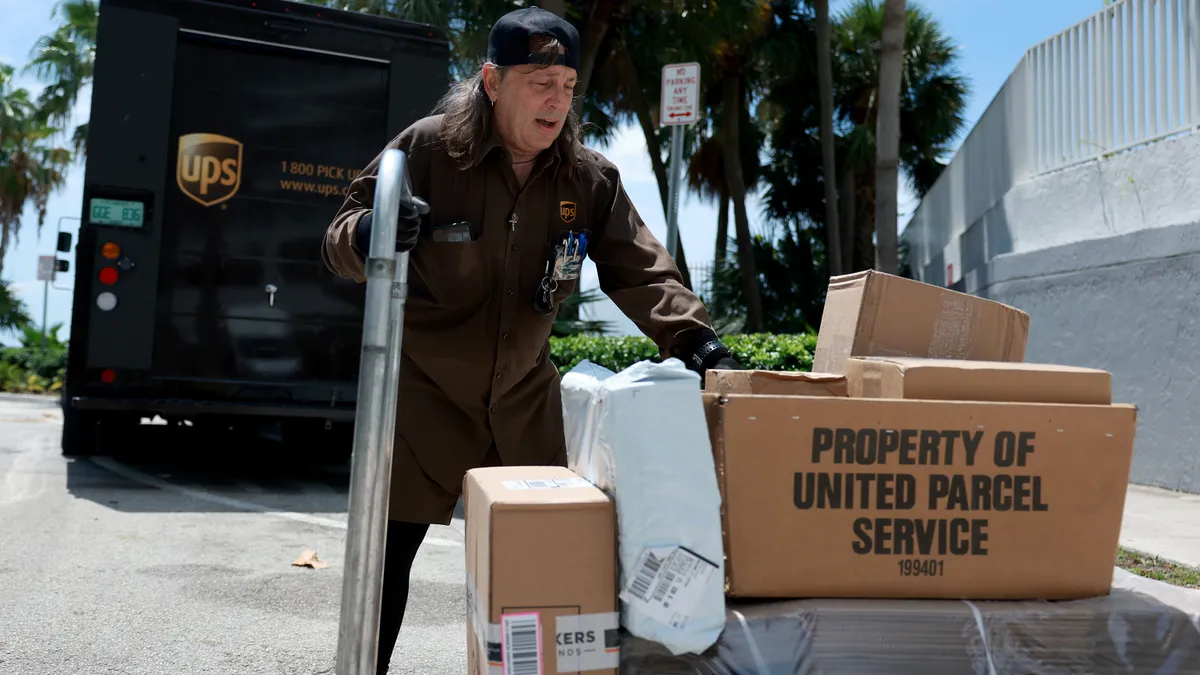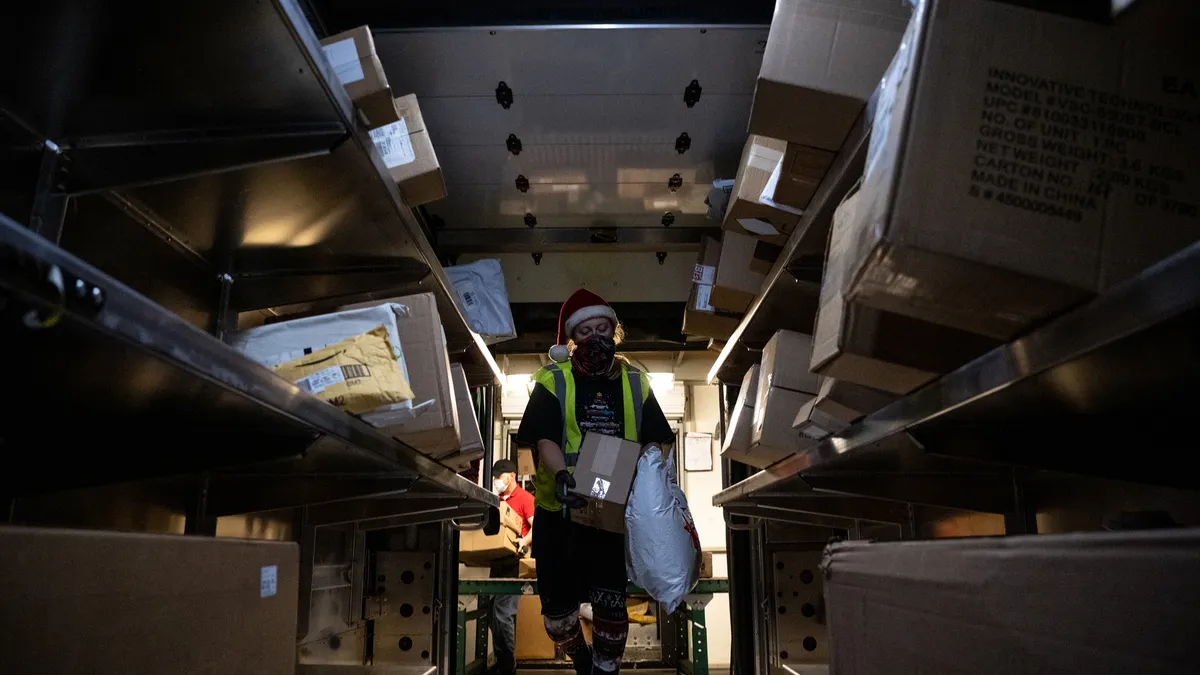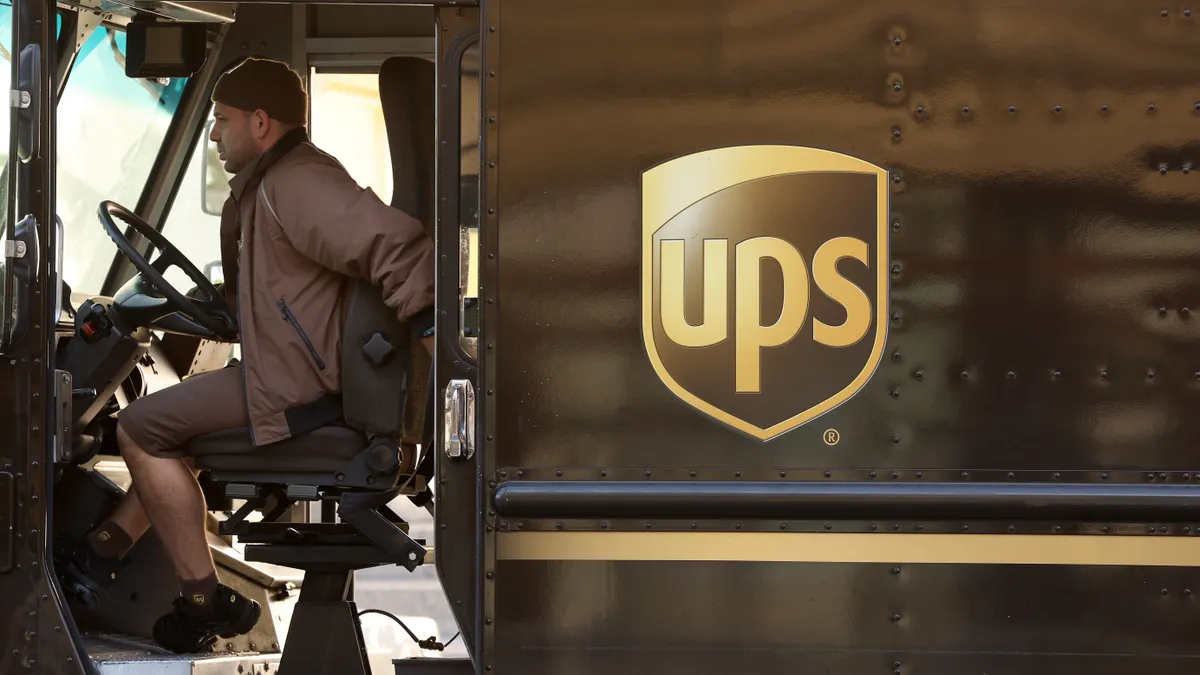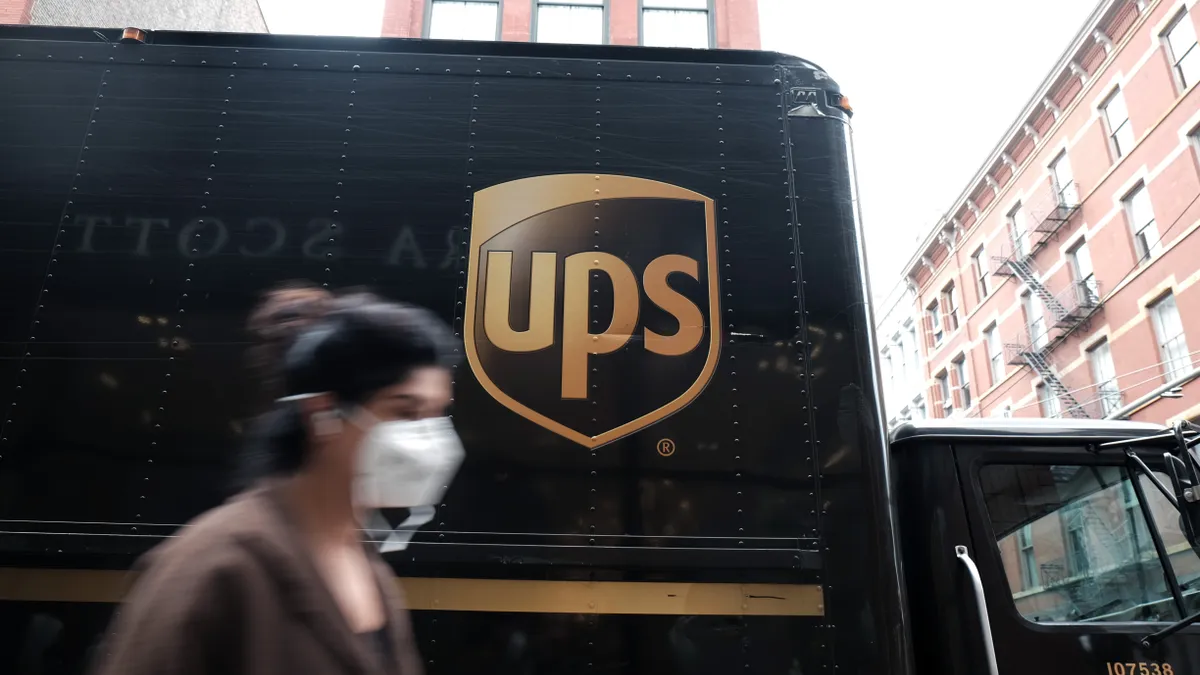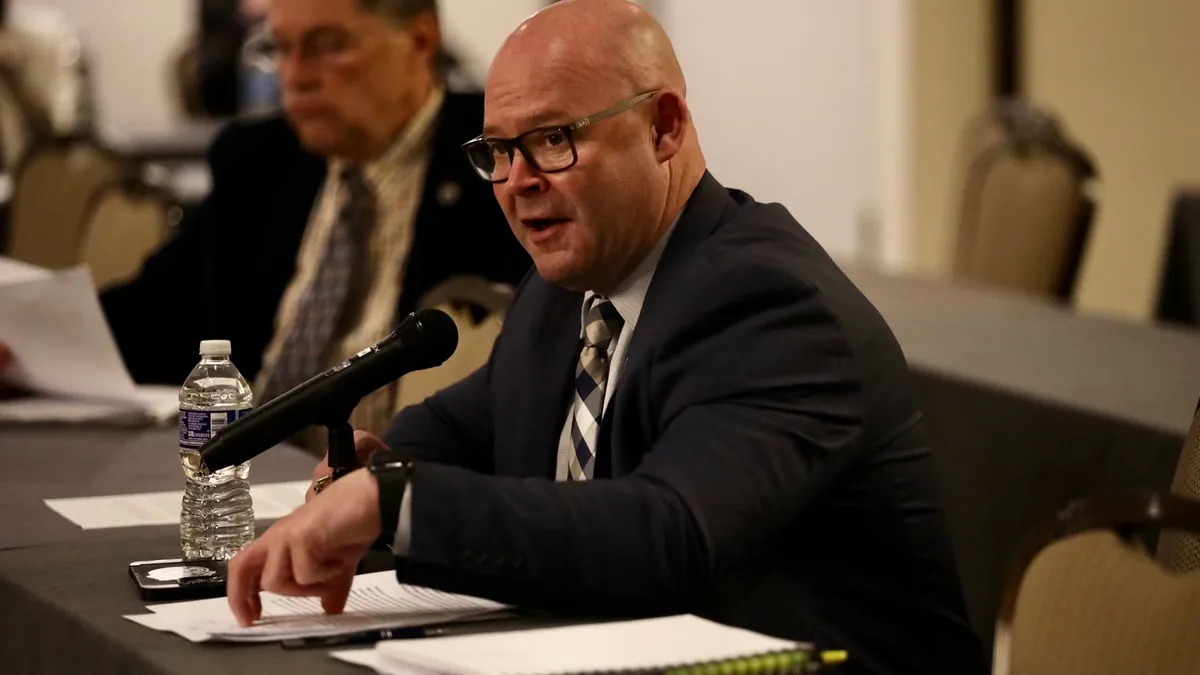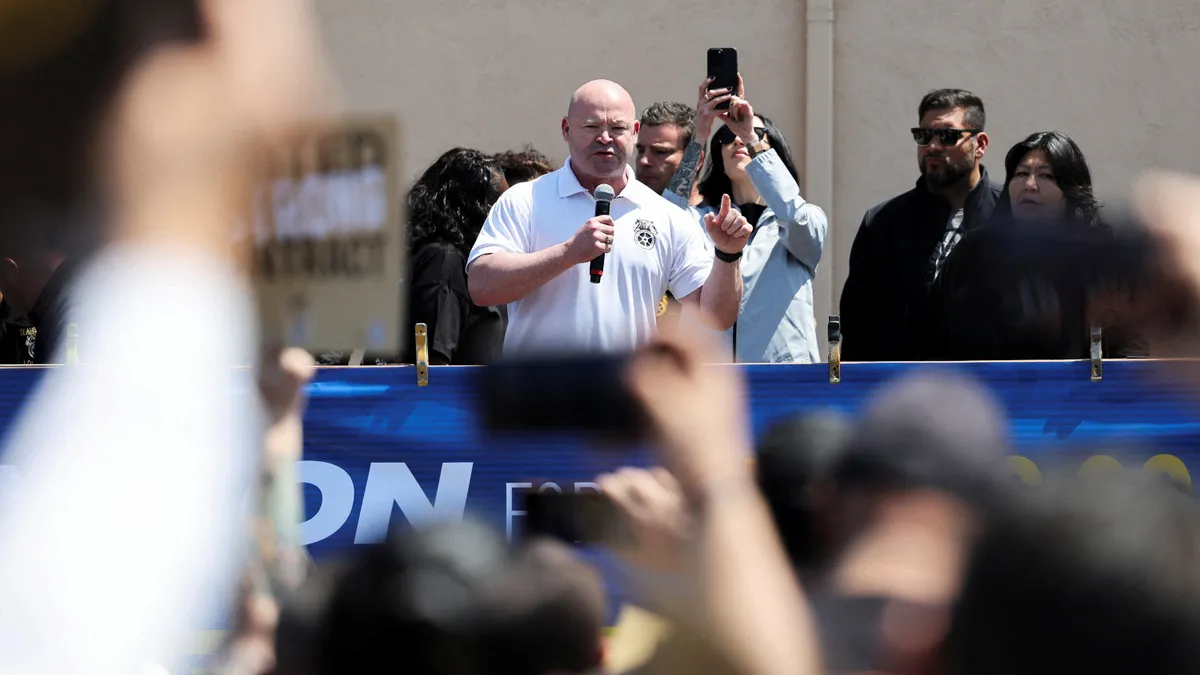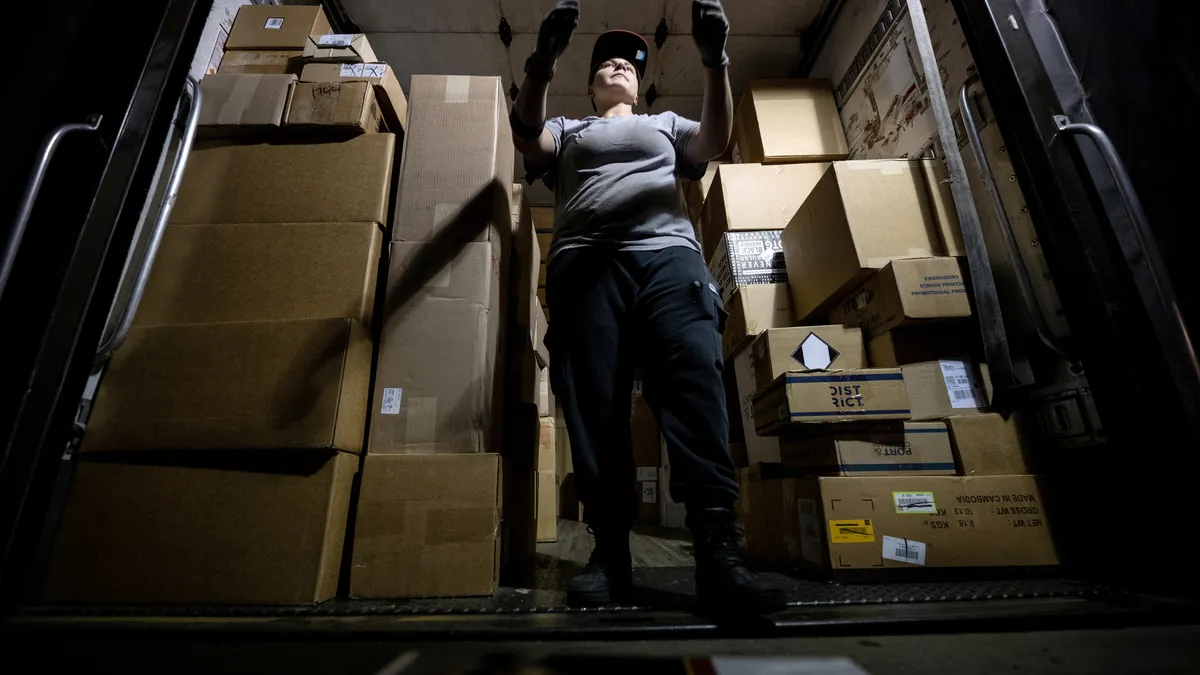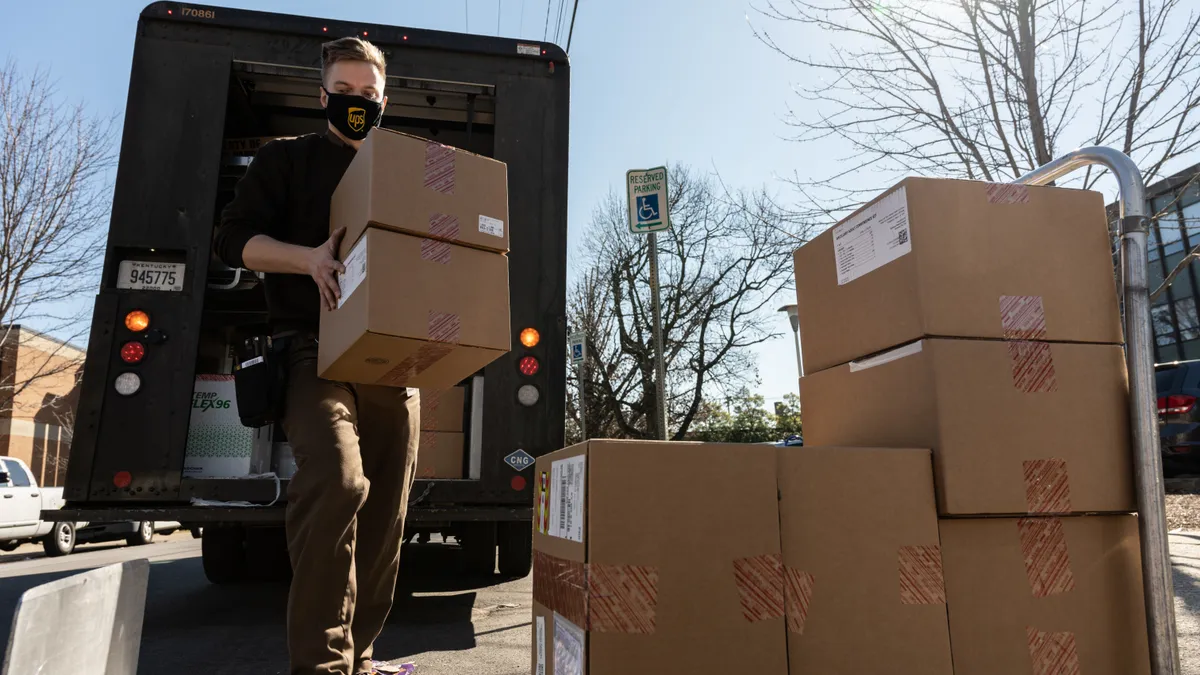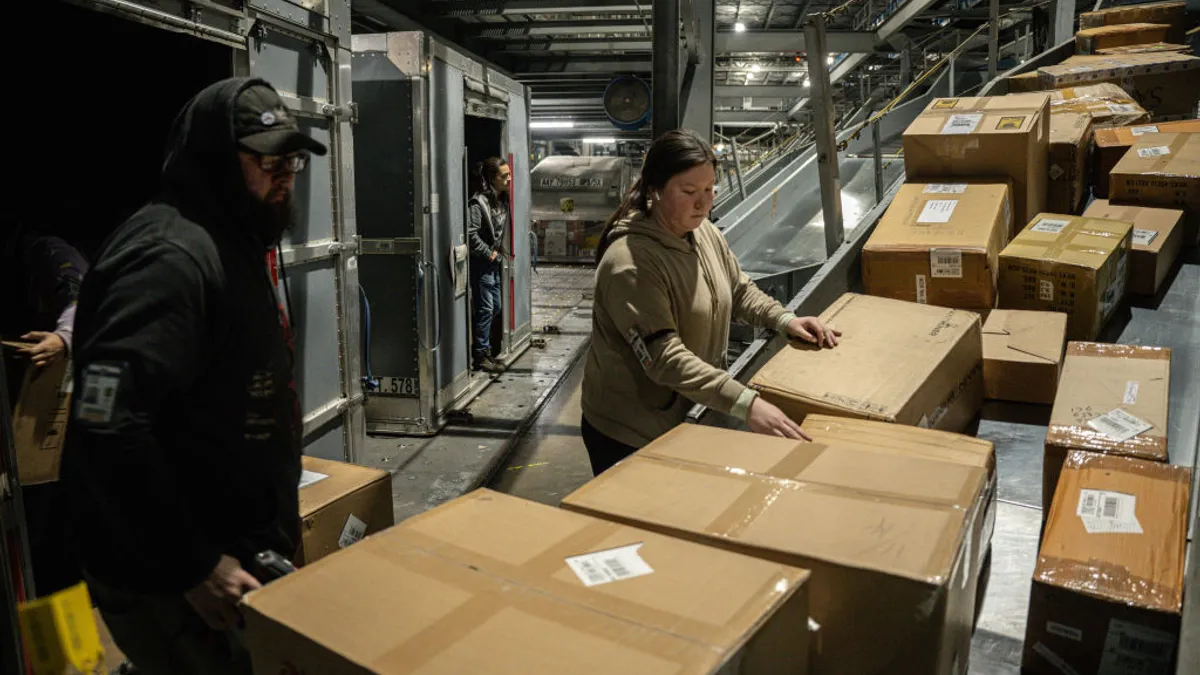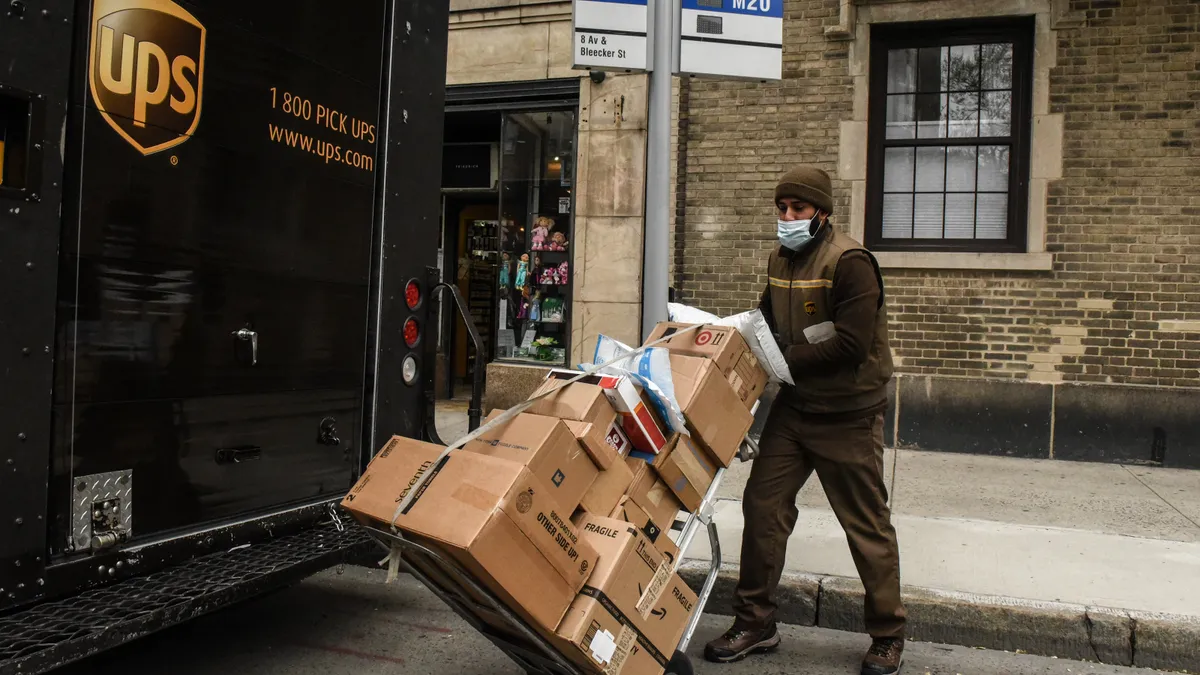UPS and the Teamsters union kicked off national contract negotiations this week, commencing a bargaining process with immense stakes for both parties and the customers who send millions of packages daily through the company’s network.
National bargaining began after the two sides exchanged initial proposals Monday, and talks “continued in earnest on Tuesday,” according to updates from the Teamsters.
The start of the talks came three weeks after the originally planned date of April 17, as the Teamsters pushed the company to reach agreements on region-specific supplemental contracts before national bargaining could commence. Two supplemental agreements affecting workers in Kentucky and Northern California still haven't been finalized, but union leaders handling those negotiations urged national talks to get underway, the Teamsters said Tuesday.
The current five-year contract expires July 31, and Teamsters leadership has made clear that a strike will occur if a deal is not reached by then, an event that would cause immense disruption for shippers.
"Teamsters will not be working beyond the expiration date of that contract unless there is a new contract that our members deserve, endorse, embrace, and vote on," General President Sean O’Brien said in April. "We are prepared to work seven days a week to get it done."
UPS has expressed optimism that a contract agreement can be reached in time. But experts say the risk of a strike is higher this year than in previous bargaining cycles due in part to the leadership of O'Brien, who successfully campaigned as an outspoken critic of previous contract negotiations during his campaign for Teamsters general president in 2021.
"There's an unpredictability about this year that hasn't been there for the last few contracts," said Alan Amling, distinguished fellow at the University of Tennessee, Knoxville’s Global Supply Chain Institute and former VP of corporate strategy for UPS.
Teamsters, UPS addressing various issues in contract talks
Inflationary pressures provide added motivation for O'Brien and the rest of the Teamsters to push for wage increases in the next contract. The union is also fighting to address concerns such as scheduling issues and pay discrepancies between certain positions.
The negotiations between UPS and the Teamsters have two facets, according to UPS. One is the National Master Agreement, covering topics like wages, healthcare and pensions. The other is the various supplemental agreements that address local topics in specific regions.
UPS CEO Carol Tomé said in an April 25 earnings call that the company and the Teamsters have established five subcommittees at the national bargaining table to focus on key areas of the contract, enabling the negotiation process to move faster.
Tentative agreements have already been reached on five issues, including more opportunities for union members to fill job vacancies prior to UPS hiring external workers, according to the Teamsters.
“What’s most critical about these early hours of national negotiations is that big gains are already being made and the Teamsters have made zero concessions to get them,” General Secretary-Treasurer Fred Zuckerman said in a statement Tuesday. “The progress made since yesterday at the national table has been hugely consequential for the rest of the bargaining process.”
Once an agreement is tentatively reached between the company and union representatives, workers will vote on whether to ratify. It needs a simple majority vote for approval.
Around 330,000 UPS employees in the U.S. are represented by the Teamsters. That number is primarily made up of package delivery drivers, tractor-trailer drivers, package handlers, clerks and mechanics, according to UPS. Union membership at UPS has also grown in recent years, with 72,000 Teamsters-represented jobs added between August 2018 and February 2022.
UPS competitors ready to benefit
Other parcel delivery companies are poised to see increased business in the event of a strike as shippers divert their packages elsewhere. Top competitor FedEx, for example, called on its customers earlier this year to onboard their volumes by March 31 in order to avoid strike-related disruptions. Fast-growing regional carriers also stand to gain from the uncertainty.
“There’s more competition than ever,” Jeremy Tancredi, a partner in West Monroe’s Operations Excellence practice, said of the parcel delivery space.
Tomé said diversion activity "wasn't very much" in Q1. However, as the contract expiration date draws near, the company has assigned executives to top customers to keep them updated on negotiations and minimize volume loss. The company expects an agreement will help bring any diverted volume back.
"Customers say, 'We'd like to ship with you, we're just going to sit on the sidelines till you're done,'" Tomé said. "So we just need to get it done, and we will."



